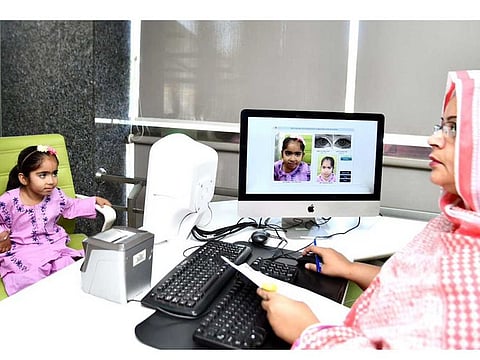Pakistan’s ‘ghost citizens’: Millions still live without identity
Unregistered citizens face legal, economic, and social exclusion in Pakistan

Dubai: More than 45 million people in Pakistan, nearly one in five citizens, remain unregistered with the state, living without official identity in what experts call a growing crisis of invisibility, according to a latest report.
Most of these “ghost citizens” come from remote regions and impoverished communities, where poverty, isolation, and lack of awareness prevent families from accessing basic civil registration services such as birth and death certificates.
Numbers are even more alarming when it comes to new children. UNICEF estimates that 60% of Pakistani children are not registered at birth, making Pakistan home to the highest number of unregistered children in the world.
“In our village, no one registers a child unless they need to go to school,” said Saba Bibi, a mother of three in Rajanpur, a largely rural district in southern Punjab. “We didn’t know it was important, or even where to go.”
Why the numbers are so high
The reasons are deeply structural. In isolated rural districts, from the deserts of Balochistan to the tribal areas of Khyber Pakhtunkhwa, registration centres are scarce, and the procedures are slow, paper-based, and costly.
Although official registration fees are minimal, indirect costs like transport, lost wages, and bribes make it unaffordable for many daily-wage families.
“Many parents in underprivileged areas do not see the value in registration. They often wait until school admission, travel, or emergencies force them to seek documents — by then, it’s complicated and expensive,” said Zahida Manzoor, a child protection advocate.
What happens to the unregistered
Without official identification, children cannot attend public school, access immunisation or health care, or be protected under child labour and marriage laws. Adults face barriers to employment, property rights, and social protection schemes.
“These unregistered people are effectively invisible to the state. They are not counted in public planning, education budgets, or health systems. It’s as if they don’t exist,” said a senior UNICEF official in Islamabad.
The issue of under-registration is not unique to Pakistan. Across South Asia, millions lack basic documentation but Pakistan’s sheer numbers and urban-rural gap have made it a priority for global development agencies.
Some progress
There have been local successes. In Rajanpur, a collaboration between district authorities and UNICEF helped increase birth registration from 6.1% in 2018 to 17.7% in 2023, thanks to mobile teams and digital pilot programs.
NADRA, Pakistan’s national database authority, has introduced online platforms and mobile registration units in some urban centres. But experts caution that rural, poor, and nomadic populations are still largely unreached.
“Digital solutions are promising, but without access to mobile phones, internet, or even basic literacy, they won’t reach the people who need them most,” said Manzoor.
What needs to change
Activists are calling for stronger government outreach, simplified procedures, and integration of registration into routine health and education services, especially in rural areas.
“Civil registration must be treated as a public health and human rights issue. It should be as automatic and essential as a vaccination,” said one UNICEF official.
Major factors to this silent crisis
Poverty: Registration, while officially low-cost, often incurs hidden expenses. Many rural families can’t afford to travel or take a day off work.
Geographic isolation: In hard-to-reach areas like Balochistan, South Punjab, and interior Sindh, registration offices are few and far between.
Lack of awareness: Many parents don’t realise registration is essential unless it’s tied to school admission, medical care, or travel.
Complex bureaucracy: Multiple visits, paperwork, and bribes deter families — especially in remote or underserved areas.
Cultural habits: In many communities, registration is only pursued when absolutely necessary — often too late.
With inputs from AFP and UNICEF
Sign up for the Daily Briefing
Get the latest news and updates straight to your inbox




